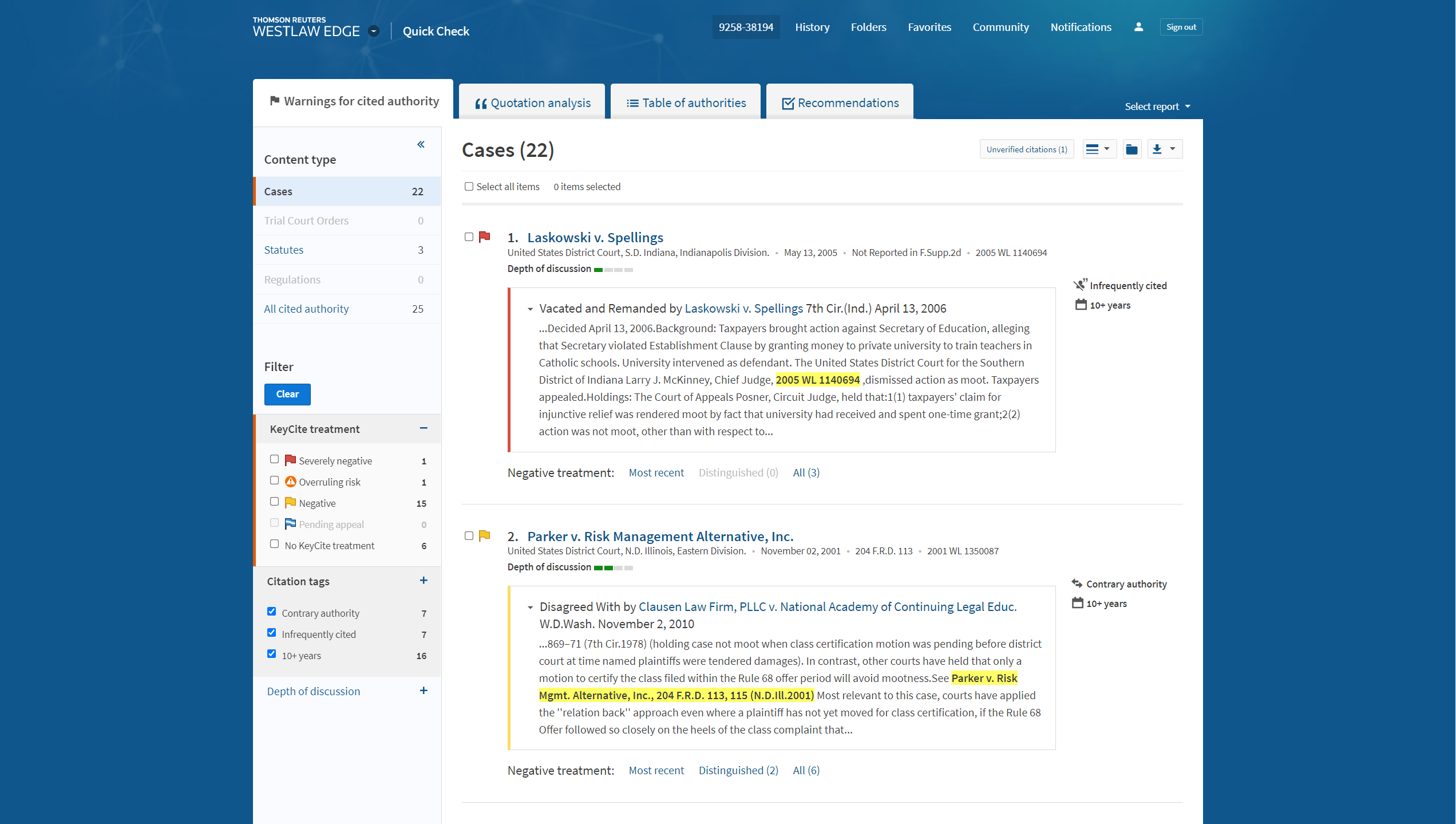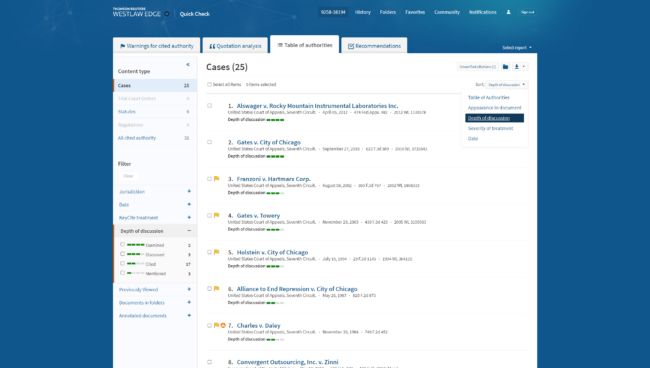A feature launched this week in Westlaw Edge is designed to help legal professionals more easily identify law that is contrary o their opponents’ arguments.
Called Quick Check Contrary Authority Identification, the feature helps find cases that may be helpful in arguing against an opponent’s filing and prioritizes them in search results, according to an announcement from Thomson Reuters.
The new feature is part of Quick Check, a component of Westlaw Edge that uses artificial intelligence to analyze a brief and identify relevant authorities omitted from the brief.
Launched in 2019, Quick Check was Westlaw’s answer to other brief-checking products on the market, all of which followed the 2016 introduction by Casetext of the original case-checking tool, CARA.
I have not tested this new feature, but the announcement from Thomson Reuters describes it this way:
“Quick Check Contrary Authority Identification locates cases that may be helpful in arguing against the opponent’s filing and prioritizes them in the results. Within Quick Check, researchers can easily compare procedural information about the analyzed document with details of the recommended cases, and quickly review tags indicating when a recommended case originated from the same type of motion or contains contrary authority. Additionally, new citation tags highlight negative aspects of authority cited by the opponent.”
After launching Quick Check in 2019, Thomson Reuters last year added Quick Check Judicial, which was designed to help judges understand and validate the briefs submitted in their courts by comparing them against each other.
The feature is available at no extra cost to subscribers of Westlaw Edge.
 Robert Ambrogi Blog
Robert Ambrogi Blog
